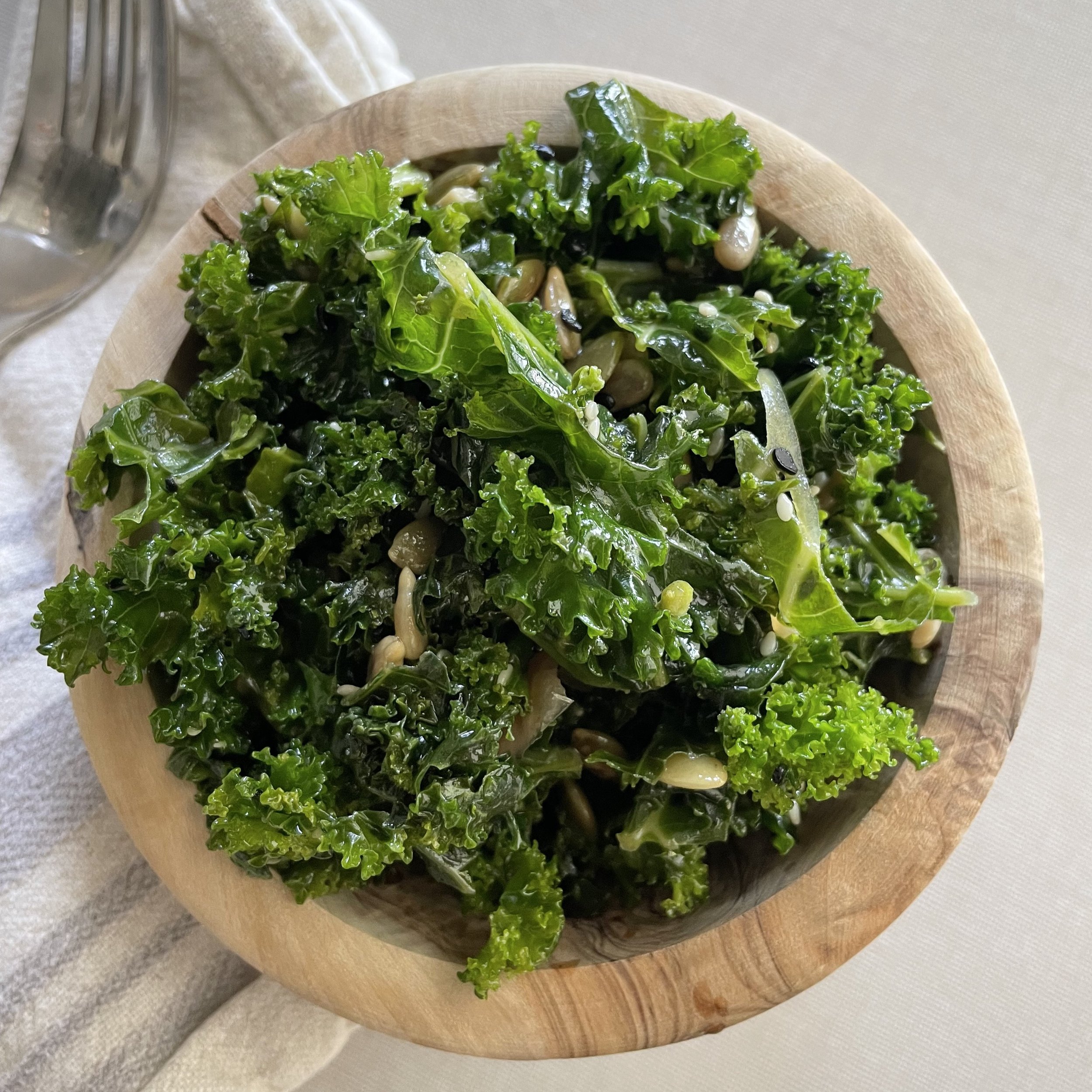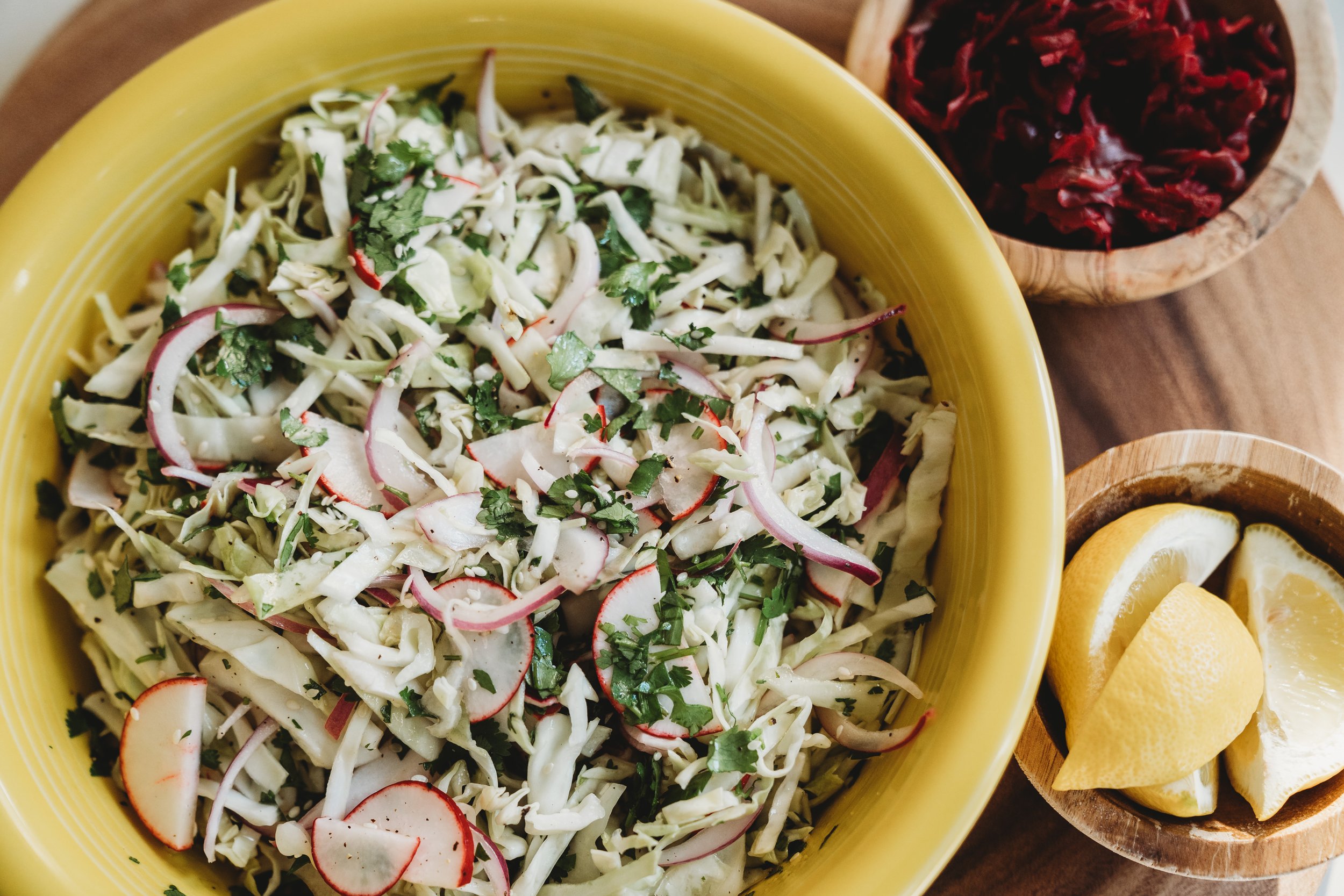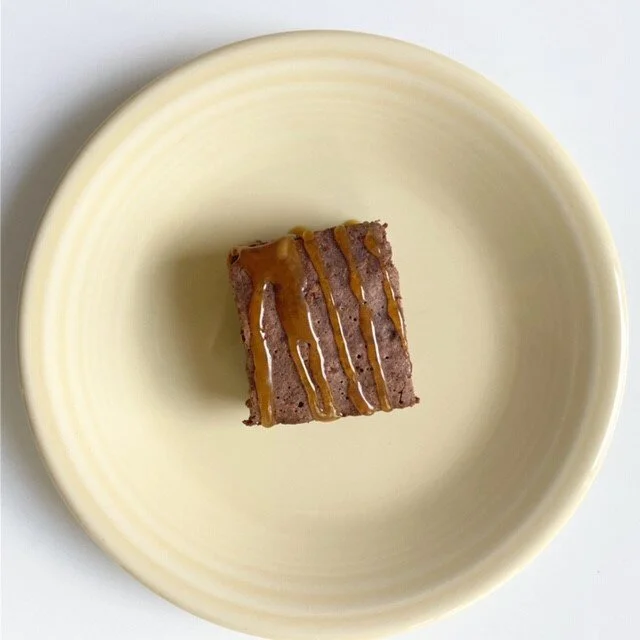With being home a lot more during this pandemic, I’ve been experimenting in the kitchen a lot more too. I didn’t jump on the sourdough train, it seemed so daunting! But I did jump on the sprouting train. One of my favorite ways to get in nutrient dense foods is in the form of sprouts. They are colorful, tasty and add texture and something extra to every meal. They are not super cheap at the farmers market or grocery store so I’ve been experimenting with making my own at home. Not only are they cheap to make, they are EASY and take very little prep or time once you get the proper tools. They are a great garnish to any meal, especially soups and salads. First things first:
What are sprouts?
When water is added to a seed, nut, bean or grain, it germinates and begins to grow, creating a sprout. The seeds transform from a dry, hard ball into a nutrient dense, bio-available bundle of vitamins, minerals, and proteins that are easier for the body to digest, and contain many beneficial enzymes. I talk about this in more detail in this post.
What are the benefits to consuming them?
Different sprouts have different benefits, but let’s focus on broccoli sprouts because they are the best of the best when it comes to nutrient density and the benefits they bring to the body given that it contains the highest amount of Sulforaphane. One of the healthiest edible substances on the planet, Sulforaphane is an isothiocyanate (ITCs), a chemical compound found in all cruciferous vegetables including cabbage, cauliflower, broccoli and kale but it is found in much higher quantities in the sprouts. Depending on the study, broccoli sprouts can contain as much as 17 to 30 times more sulforaphane than broccoli. Don’t get me wrong, you should still eat broccoli too, it has many benefits, but the sprouts contain more of the sulforaphane goodness. Blending, chopping, or chewing the sprouts activates an enzyme that creates the conversion to sulforaphane in the sprouts. In addition to ITCs, depending on the type of sprout you consume, they contain high amounts of beta carotene, omega-3 fatty acids, protein, vitamin C, Folate, Iron, Vitamin K, and Fiber. Sprouting increases protein by as much as 20% and these other vitamins by up to 500%!!!! Sprouting also reduces the phytic acid and lectins in beans and grains that can make them hard to digest. Sprouts are truly a superfood.
The benefits to consuming them include but are not limited to:
Protection against certain cancers (including but not limited to: colon, prostate, breast, skin, lung, stomach)
Heart supportive properties
Protection against neurodegenerative disease and DNA damage
Supportive of hormone metabolism
Increases glutathione production (an antioxidant produced by the liver that helps neutralize free radicals and reduce oxidative stress that can damage the body's cells)
Anti-inflammatory
Detoxification of carcinogens
Anti-estrogenic properties
Other types of sprouts such as lentil, alfalfa, radish, mustard (and more!) are wonderful to experiment with too and are also quite nutrient dense.




















